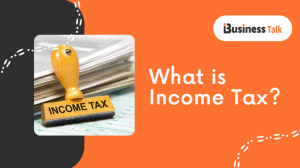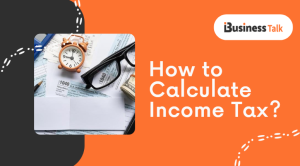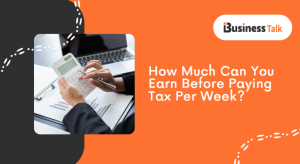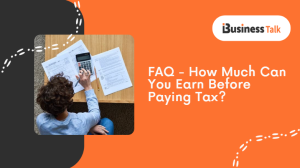
How Much Can You Earn Before Paying Tax? – Tax Brackets in UK
Taxing is one of the costs of doing business if you’re self-employed. That’s why it’s important to be as knowledgeable about income tax as possible. This blog is for you if you’re self-employed or an employer and want to know how much tax your employees pay and how much tax the company pays before beneficiaries see the money.
What is Income Tax?

Income tax is a tax levied on income generated by businesses and individuals. It funds public services, such as the NHS and education. There are several types of income subject to income tax, including remuneration income, profits from business or trade, investment income, rental property income, pension income, and capital gains.
Most people qualify for tax relief and allowances. This means they don’t pay tax on all of their taxable income. For example, those who earn below a certain threshold amount may be eligible for an income tax allowance. This allowance reduces the amount of income tax payable by that person. Also, those with higher incomes may be eligible for higher tax rates.
Everyone must pay taxes unless they are low-income taxpayers. Taxes on income help finance the government’s spending on public services and other vital areas of public life, like defence and infrastructure development.
How Much is Income Tax?
- Income tax is a tax levied by the government of a country on income earned by individuals and organizations.
- The income tax rate varies from country to country, with higher rates for higher income earners.
- In the UK, self-employed individuals will pay income tax on profits of more than £12,570 per year.
- Individuals with taxable income of less than £12,570 will not pay any income tax.
- Income tax is paid according to the UK’s tax bands, which differ in Scotland. The additional income tax rate is 45 percent and is paid on earnings over £150,000 per year.
- Everyone in the UK must pay taxes unless you’re a low earner.
How to Calculate Income Tax?

- To calculate your income tax, you’ll need to know your taxable income and your personal allowance.
- Your taxable income is the total amount of money you receive from all your income sources.
- The personal allowance is an annual amount that reduces the tax payable by a person in a particular year.
- Different tax rates depend on how much money you earn, so it’s essential to understand your personal allowance and rate bands.
- The government will send you a tax return every year detailing what type of taxes have been paid and any extra tax due.
What is Classed as Low Income for Council Tax Reduction?
- Individuals earning less than the standard personal allowance of £12,570 are eligible to receive tax relief on their pension contributions.
- If their income is below the income threshold of £3,600 per year, they can get tax relief on pension credits worth up to £3,600 annually.
- That earning between £3,600 and £12,570 can receive tax relief on 100% of income.
- For earning below the income threshold of £3年6,000 per year, they must pay into a pension scheme set up on the ‘net tax basis’ to receive tax relief.
- To claim tax relief on pension contributions under the personal allowance rate of income tax rates, individuals must have earned income within that amount range during the tax year.
- Individuals must have earned income above that amount range during the tax year to claim tax relief under higher income tax rates for pension contributions.
How Much Can You Earn Before Paying Tax?
- In the UK, individuals can earn up to £1,000 before they are required to pay tax in the tax year 2022-2023.
- If you have income from self-employment and your profits are less than the personal allowance of £12,570, then you won’t pay income tax.
- To calculate taxable income, you need to consider income from other sources such as rental, dividends, trust, and interest income.
- Income taxes are applied to income from employment, self-employment, certain state benefits and pensions.
- Income taxes are levied on the income of all individuals and companies in the country.
How Much Can You Earn Before Paying Tax Per Week?

- If your income is below the income threshold of £267.50, you won’t pay tax on any of your earnings.
- However, if you have income from self-employment and your profits are more than the personal allowance of £12,570, then 10% of your total profits will be taxable at the basic rate (20% for higher-rate taxpayers).
- Income tax calculations are made by taking into account all earned income during the week, including money received as an advance on wages or salary paid in later weeks.
How Much Can You Earn Before Paying Tax Per Month?
- In the UK, individuals can earn up to £3,000 before they are required to pay tax in the tax year 2022-2023.
- Money earned above this amount is taxable at income tax rates of 20%, 40% or 50%.
- If you have income from self-employment and your profits are more than the personal allowance of £12,570, then 10% of your total profits will be taxable at the basic rate (20% for higher-rate taxpayers).
How Much Can You Earn Self-Employed Before Paying Tax?
If you are self-employed and make profits of more than £10,000 per year, then 10% of your total earnings will be taxable at the basic rate (20% for higher-rate taxpayers).
When do You Start Paying Taxes on Wages?
You start paying tax on your wages when you receive them in cash, in an instalment or as a salary. However, if you are self-employed, pay tax on your profits from the business simultaneously as you earn them.
How Much Do You Have to Earn to Pay Tax?
In the UK, you must pay tax on your earnings if they exceed a certain amount. This is called the tax threshold. The tax threshold for the 2019/20 tax year is £12,500. This means that you will only have to pay tax on any earnings above this amount. If you are self-employed, you will also have to pay National Insurance contributions (NICs). The rate of NICs you pay depends on how much you earn. For example, earning £12,000 per year will pay £2.80 per week in NICs.
Conclusion
There is much to learn about tax and how it works. Whether you’re self-employed or employed, tax is a big deal. But it’s manageable if you keep your tax responsibilities in check. The above article has made the tax system more approachable and understandable. Also, remember to ask for help from experts if you still need clarification on the tax system. They can help you understand the tax laws clearly and ensure your compliance is up to par.
FAQ – How Much Can You Earn Before Paying Tax?

Why Have I Paid Tax When I Don’t Earn Enough?
Income tax is usually paid on all forms of income, including wages, profits, rental income, dividends, and more. The amount of tax payable will depend on the income tax allowance a person is eligible for and their taxable income.
Most people are eligible for tax allowances, which allow them to earn a certain income without paying taxes. Taxable income also includes self-employed individuals who pay Self-Assessment tax, which is paid yearly in arrears. In addition, capital gains, pension income, and certain lump sum benefits may also be subject to Income Tax.
How Can I Make Tax-Free Money?
There are a few ways that you can make tax-free money without having to pay tax on it.
The first way is to use the personal allowance. The personal allowance is the income you can earn tax-free each year. This amount changes yearly but currently stands at £11,000.
You can also use the tax-free trading allowance of £1,000 against your income. This means you can reduce your taxable income by up to £1,000 yearly.
Finally, you can apply for tax-free state benefits, such as disability allowance, sick pay and state pension. These benefits are usually tax-free when you receive them but may have additional tax liabilities later on.
In total, these three methods of tax-free income account for almost £34,000 in tax-free income every year!
Is There a Limit for Hobby Income?
There is no limit to how much you can earn from a hobby. What’s more, you are responsible for paying taxes on your hobby income. For example, you must pay income tax if you make money from crafting, painting, or any other art form.
If you have any questions about how much you need to pay in taxes or would like to consult with a tax advisor, don’t hesitate to reach out to an accountant or tax specialist.
How Does the Government Know if You Don’t Pay Taxes?
Generally, taxpayers must file an information return with the IRS to pay taxes. This return contains personal information about the taxpayer, including their income and tax refunds.
The government uses data processing activities and technologies such as cookies to store and access device information. This allows the government to track taxpayers’ online activity and collect tax data from their devices.
Moreover, the GDPR grants data subjects the right to receive specific information about the data controller’s personal data collection and processing activities. Sometimes, this may include information about the tax amount owed or a refund being issued.
Lastly, audits may be conducted to determine if taxes have been paid. If so, tax refunds may be issued as a result.
Do Students Pay Tax?
Students in school or university are generally exempt from paying income tax. This means they don’t have to pay taxes on any of their income, including money they earn while studying.
However, students must still pay taxes on any money they make from a part-time job or summer job. Similarly, students must also pay taxes on any scholarships or grants they receive.
Why Do So Many People Not Pay Income Tax?
- There are many reasons why so many people don’t pay income tax. Some of the most common reasons include the following:
- Low earners may be exempt from Tax, meaning they only pay tax on a certain amount of their income.
- People may qualify for one or more allowances, meaning they don’t need to pay tax on all of their taxable income.
- Some people may need to be aware of their obligation to pay Income Tax and may end up paying it after they have already received their income.
- People may be able to claim certain tax write-offs in certain situations, such as claiming deductions for expenses related to work, self-employment, or income-generating activities.
- Income Tax rates vary depending on how much a person earns.
Do I Have to File Tax Return if Made Less Than 5000?
Income tax filing thresholds for 2018 are as follows:
- If your income is less than $19,800, you are not required to file a tax return.
- If your income is between $19,801-$47,600, you may file a tax return without payment of any tax.
- If your income is $48,601 or more, you must file a tax return and pay taxes based on your income.
- You may be eligible for the Earned Income Tax Credit (EITC), which provides tax relief of up to $6,318. This credit can reduce your income tax liability even if you do not owe taxes.
- The self-employed should register with the IRS and file taxes electronically using tax software like TurboTax. This will minimize errors and help to keep track of all business rates.





